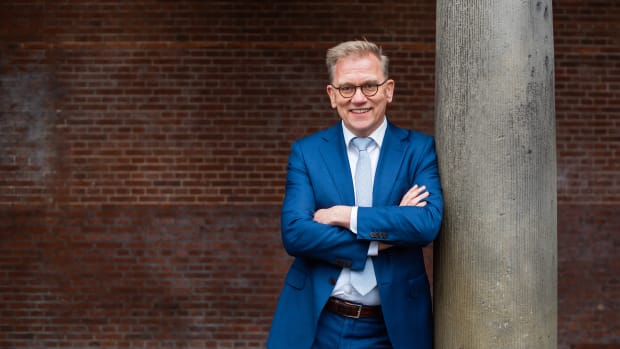
Eppo Bruins to become Minister of Education
According to NOS (Netherlands Broadcasting Foundation) sources, Eppo Bruins will become Minister of Education on behalf of the New Social Contract. Bruins is Chairperson of the AWTI Advisory Board and was a member of the House of Representatives for the Christian Union until 2021.
Eppo Bruins (1969) will succeed outgoing minister Robbert Dijkgraaf (D66). The Ministry of Education, Culture, and Science has another minister, Mariëlle Paul of the VVD. It is not yet known whether she will remain in her post.
The division of the ministry’s portfolio is not known. Dijkgraaf has MBO, HBO, and science education under his belt and insisted on the equality of those types of education and garnered appreciation for that. It is expected that the next minister will also combine these education sectors.
Primary and secondary education will then be in the hands of the other minister (or state secretary). Who gets culture and media remains to be seen.
Fewer students
As a member of Parliament in 2020, Bruins said in an online debate that perhaps too many young people are going into higher education. “We as a country are dependent on the choices of 17-year-olds, while we are faced with the big problem of sustaining our earning power in the future,” he stated. He added, “Are enough people still going to MBO (vocational education), learning bricklaying and carpentry?”
In that same conversation, Bruins said that more money should go to science because it is important for the economy, or towards solving social problems such as radicalization and terrorism. The outline agreement of the new coalition parties includes a hefty cut in higher education and research.
Bruins, who himself studied physics, has regularly advocated in the House of Representatives for other disciplines, especially when the cabinet shifted €100 million to STEM. “We particularly want to secure the position of the humanities,” he said. “These disciplines are vulnerable but high-level and valuable to our country.”
Recognize and appreciate
He currently chairs the Advisory Council on Science, Technology, and Innovation. Among other things, the Council has written positively about “recognize and appreciate,” the attempt by university administrators to pay less attention to rankings and publications in top journals. Employees are also recognized for excelling in other areas such as teaching, valorization, or leadership.
The Council also advised universities to be less “naïve” about knowledge security. “Until recently, you could raise tons of research money if you wanted to cooperate with China, with hardly any conditions attached,” AWTI president Eppo Bruins said in late November in current affairs program “Nieuwsuur.”
Innovation
Another topic is innovation. Bruins and other Council members made the case for social sciences and humanities. In innovation, disciplines such as psychology, law, sociology, and cultural studies are crucial, was the message.
Two years ago, the Council advocated interdisciplinary research. The government could encourage this research in two ways, was the thought. In an interview with the HOP, Bruins said, “You then have to stimulate free research that comes from the intrinsic curiosity of researchers, for example, through NWO’s free competition. You can remove certain prohibitive rules so that collaboration with artists or experts by experience, for example, becomes easier.”
“You can also encourage top-down research into certain complex subjects, which is inherently interdisciplinary,” he said, outlining the other side of the policy. “Those two things should not be conflated.”

